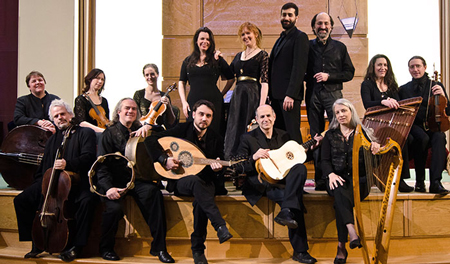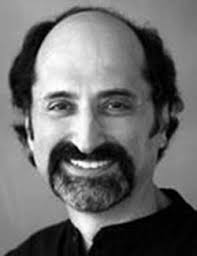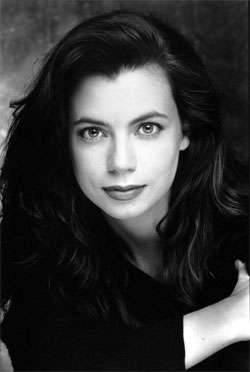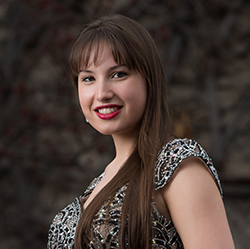by Christine Jay

Reprising the popular show from two years ago, Apollo Fire will present four performances of Sephardic Journey, culminating in two public CD release parties after the February 5th and 7th performances. The ensemble’s ‘Sephardic Week’ will begin on Thursday, February 4th at 7:30 pm at Fairlawn Lutheran Church, with subsequent concerts at St. Paul’s Episcopal Church in Cleveland Heights (February 5), the Maltz Performing Center at Cleveland’s University Circle (February 6), and at Baldwin Wallace’s Gamble Auditorium (February 7).
“I’ve always loved this music,” Sorrell told us in a telephone interview from Houston two years ago, where she was conducting two complete cycles of Brandenburg Concertos — the kind of repertoire in which she’s made her reputation. “I’ve been working closely with Nell Snaidas and Jeffrey Strauss, who have sung Sephardic music all their lives.”
We spo
“Then, lo and behold, there’s Salamone Rossi, a composer and friend of Monteverdi’s — and the most illustrious Jewish composer of the Baroque period. It’s fascinating and almost strange that he played the violin in Monteverdi’s orchestra. It blows my mind that this openly Jewish composer could sit down and play the Christian Monteverdi vespers in Venice.”
“The concert starts with bells and drums. It’s almost like a theatre piece,” Strauss said. “Jeanette evokes not only a sound space, but an emotional space. It’s a call to prayer, introspection, and attention. In this particular case, she uses sounds that I associate with the Middle East. There’s percussion, a couple of violins playing in dialogue, and a drone. This could describe North Indian music, which I love. It’s the same impulse.
“Then voices come in with a call and response called ‘My Mother, I want to go back to Jerusalem.’ I think of it as a metaphor for one’s yearning for an emotional home within the self. That sense of longing for your community is palpable through the whole program. We go on from there to a set of three or four chants in Hebrew which are sung to this day in Sephardic synagogues. Then we shift gears into Salamone Rossi’s gorgeous, polyphonic sonatas. It’s not a jarring shift, the way it’s set up. It makes sense. Then we go on to the section with Nell Snaidas, who is just brilliant. She and Karim Sulayman sing some quite famous, quite secular Judeo-Spanish love duets.”

Joining Sorrell, Snaidas, Strauss, and Sulayman will be hammer dulcimer player Tina Bergmann, percussionist Rex Benincasa (“who will be coming from New York with a truckload of exotic instruments that will add wonderful color and texture,” Sorrell said), string playerss Olivier Brault, Julie Andrijeski, Adriane Post, Karina Schmitz, Cynthia Black, Sue Yelanjian, and René Schiffer, and guest artist Christina Patton, who will play harp, flute, and shawm — the latter, a loud “outdoor” instrument, made its first Apollo’s Fire appearance in Sephardic Journey. Adding to the musical textures will be the twelve members of Apollo’s Singers, who have been receiving coaching in Hebrew from Strauss.
For Strauss, a classically-trained baritone, Apollo’s Fire’s Sephardic program harkens to his Ashkenazi Jewish upbringing and childhood. “When I was a kid, I was actually trained to sing cantorial music. My first paying job, at sixteen, was leading prayers in a temple. Being able to improvise in Hebrew is something I learned to do at a young age.”
Strauss said, “I find this program very emotional. From the first time we did it two years ago, lots of people — by no means were they all Jewish –– felt this music had a particular pull to it. There’s something very earthy about it. You can taste it. It has the grit of daily life. I can’t look at the CD cover without thinking of the Syrian refugee crisis. Now, in 2016, it’s a story that resonates politically and emotionally. In the end, it’s not so much a Jewish thing, it’s just a human story about people looking for their identity. It’s a reflection of the human experience. I think that’s what people are reacting to.”
Speaking to us in a separate interview, tenor Karim Sulayman said, “I think it’s a beautiful, beautiful program. Between the Rossi and the traditional music, it definitely speaks to the audience.”
Daniel Hathaway contributed to this article.

Published on ClevelandClassical.com February 1, 2016.
Click here for a printable copy of this article



